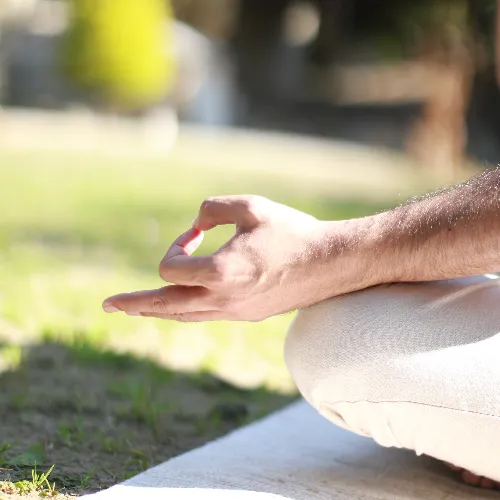


While yoga is often associated with movement and breathwork, its deeper gifts lie in the stillness of the mind. At the heart of yogic wisdom is meditation — a powerful practice for nurturing emotional intelligence and self-mastery.
In today’s fast-paced world, emotions can easily feel overwhelming or confusing. Meditation offers a grounded, science-supported way to observe your inner landscape with calm awareness. Rather than reacting impulsively, you learn to respond — with clarity, compassion, and insight.
Let’s explore how meditation strengthens emotional intelligence and how to begin weaving its benefits into your daily life.
How Meditation Enhances Emotional Intelligence
Emotional intelligence is the ability to understand, manage, and express emotions — both your own and others’. Meditation sharpens this skill by cultivating four foundational pillars:
1. Mindfulness: Being Present Without Judgment
Through meditation, you learn to witness emotions as they arise — without being swept away. This presence gives you space to pause, reflect, and choose how to respond rather than reacting from habit.
2. Clarity: Seeing Through Mental Fog
Practices like focused breath awareness bring mental stillness and perspective. As the noise quiets, emotions become clearer and easier to understand — supporting wiser decisions and emotional balance.
3. Emotional Insight: Understanding Your Inner Landscape
Meditation invites you to explore the why behind your feelings. Over time, you become familiar with your emotional patterns and triggers — a key step in transforming reactivity into resilience.
4. Emotional Regulation: Responding with Wisdom
With regular practice, meditation strengthens your capacity to remain centered — even in stressful situations. This equanimity is the cornerstone of emotional mastery.
Meditation Practices for Emotional Intelligence
Here are three accessible practices that nurture emotional clarity, regulation, and empathy — no experience required.
1. Breath Awareness Meditation
A practice for calm, clarity, and emotional self-regulation.
Why it works:
By anchoring your attention to the breath, you create a stable foundation for observing thoughts and emotions as they come and go — without being caught in them.
How it helps:
How to practice:
2. A heart-centered practice for empathy and emotional healing.
Why it works:
By repeating phrases of goodwill, you shift your emotional state from contraction (anger, fear) to expansion (compassion, connection).
How it helps:
How to practice:
3. Body Scan Meditation
A grounding practice for tuning into emotional signals stored in the body.
Why it works:
Emotions often manifest as physical sensations. Scanning the body helps you identify where you hold tension or stress — and release it.
How it helps:
How to practice:
Meditation as a Gateway to Emotional Mastery
Meditation isn’t just about quieting the mind — it’s about knowing yourself. It cultivates the emotional intelligence needed to navigate life with greater awareness, empathy, and grace.
Whether you practice Breath Awareness, Loving-Kindness, or a Body Scan, each session deepens your connection to your inner world. Over time, meditation helps you meet life not from reaction, but from wisdom — with a heart that listens, and a mind that sees clearly.
Ready to Begin?
You don’t need hours or perfect stillness. Just a few minutes each day can unlock profound shifts in how you relate to yourself and the world around you.
So take a breath. Take a seat.
And let meditation guide you toward a more emotionally intelligent, compassionate, and empowered life.






























































































